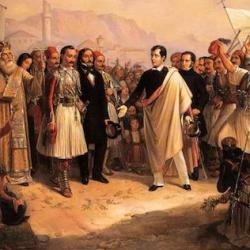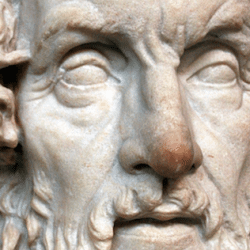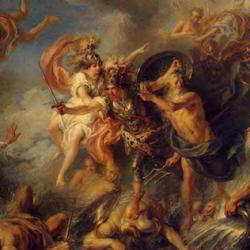There are still, surprisingly, some classical scholars who minimize the influence of religion on Athenian democracy. Hugh Bowden’s recent Classical Athens and the Delphic Oracle is a direct assault on this secular vision. As summarized by Joy Connolly in the TLS, “Dismissing studies of Athenian politics that ignore religion, Bowden contends that the democracy was ‘above all a system for establishing and enforcing the will of the gods.’ Far from relying on core liberal values of transparency and deliberative reason, his Athenians spend much of their time applying religious practices to political questions. When they seek advice from an oracle or peer at the livers of freshly killed animals, they are not (as scholars have argued) simply claiming divine authorization for their policies or seeking easy solutions to intractable problems. Nor are they creating back-door opportunities for enterprising politicians to fix the system by bribing priests. Rather, believing that human endeavor stands or falls on divine favor, the Athenians approach political decisions – going to war, founding colonies, dealing with plague – as matters to negotiate first with the gods.” Bowden concentrates on the political role of the Delphic oracle, arguing against the popular notion that the Pythia spoke with, well, Delphic ambiguity. Rather “the Pythia responded in prose to questions that appear almost to have been designed for protection against fraud.”















